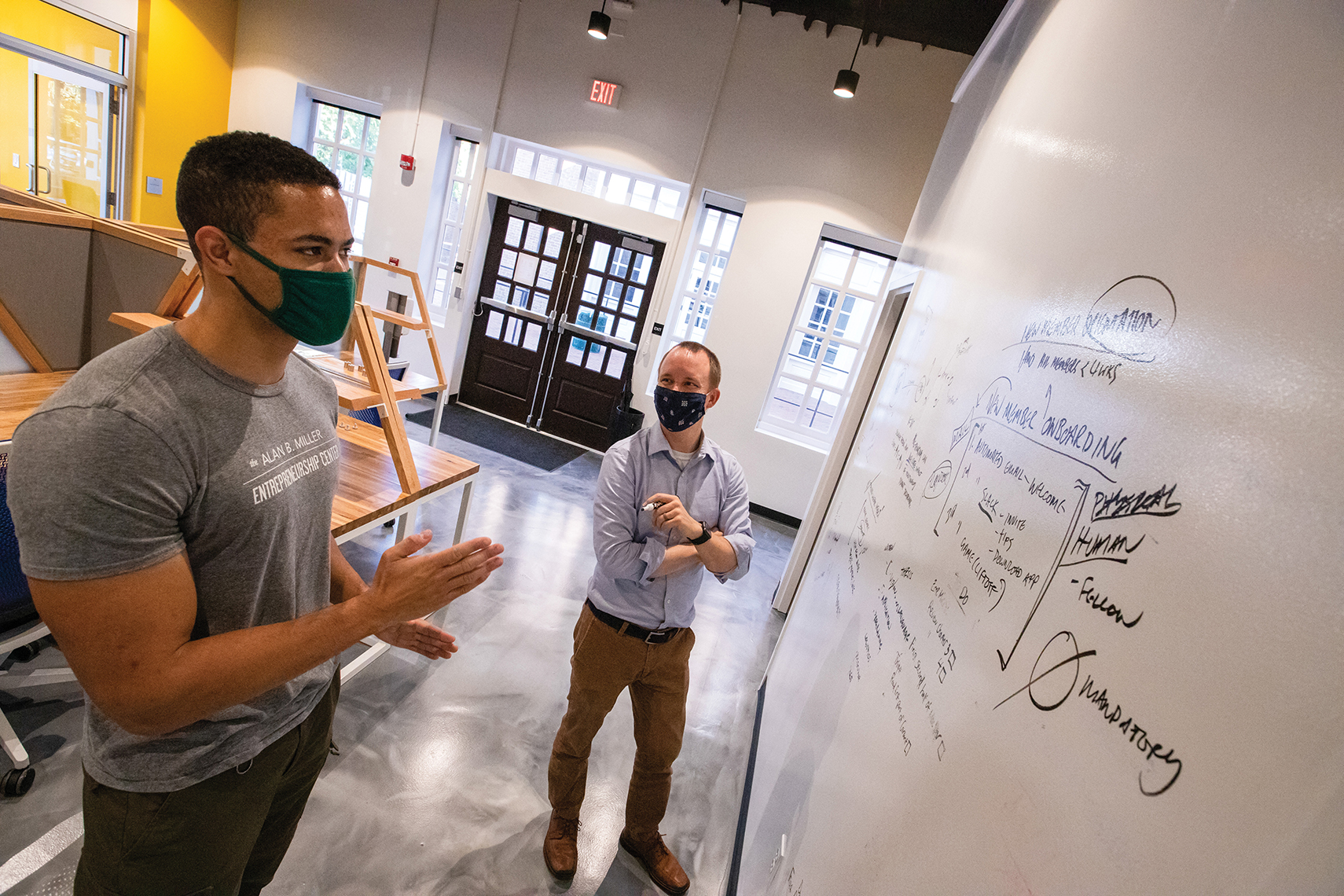When Nick Dantzlerward ’22 arrived at William & Mary his freshman year, he looked for a place on campus to explore his passion for entrepreneurship. He was happy to discover the Alan B. Miller Entrepreneurship Center and a whole new way of thinking.
“At first, I was under the impression that entrepreneurship was all luck based,” says Dantzlerward, who is a government major. “I’ve discovered that there is a process for developing entrepreneurial thinking to work through all kinds of challenging ideas.”
Efforts to support entrepreneurship at William & Mary were brought to life in 2009 through a generous investment by Alan Miller ’58, D.P.S. ’14 to create the Miller Center in the Raymond A. Mason School of Business. The center also continued to benefit from the private support of many donors throughout the For the Bold campaign.
In 2019, President Katherine Rowe accelerated and amplified William & Mary’s entrepreneurial movement by allocating resources from the President’s Strategic Investment Fund, which was created through an anonymous alumna’s $1.5 million gift to enable President Rowe to invest in key priorities. The unrestricted resources were used to expand to a second location and create the 7,000-square-foot Entrepreneurship Hub in Tribe Square on Richmond Road.
Powered by programming from the Miller Center’s team, the hub has become a regional center for entrepreneurial thinking. It offers co-working space, makerspace access, networking opportunities and mentorship. It also manages the area’s business incubator, Launchpad, which brings entrepreneurs and students together for collaboration and creative thinking.
“We’ve created an incredible community. This is the center of gravity for entrepreneurial thinking on campus and in the region, mixing many different audiences in one space,” says the center’s executive director, Graham Henshaw.
Unlike many university-based entrepreneurial centers that focus primarily on launching startup businesses, William & Mary teaches students a highly versatile set of skills and a mindset that will help them solve complicated problems in any setting.
As part of the center’s vision, Henshaw devised eight pillars of entrepreneurial thinking to help guide the process. The pillars include opportunity discovery, failing wisely, improvisation, collaboration, openness to risk, tolerance for ambiguity, grit and self-direction.
